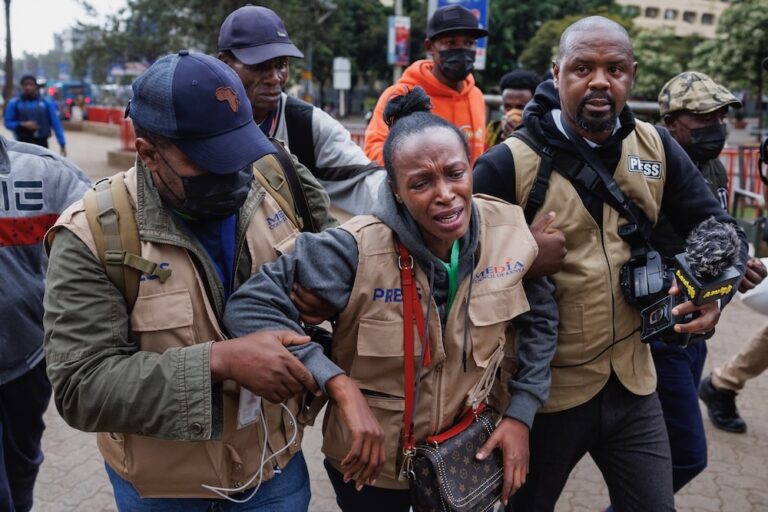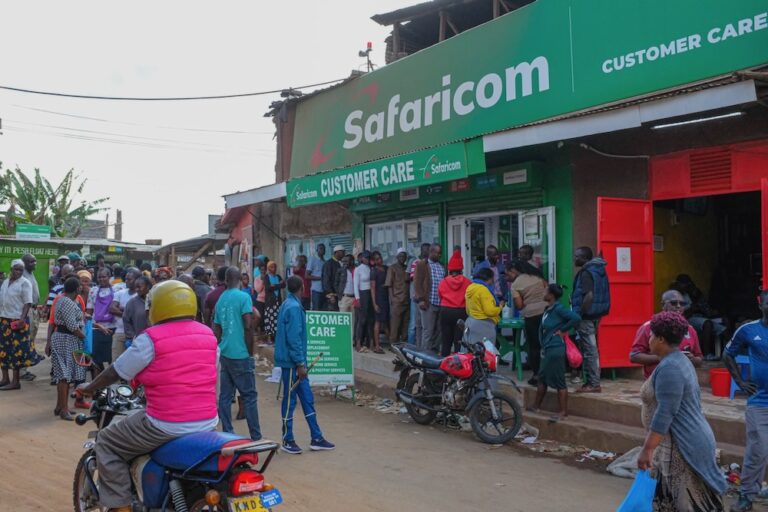The government’s recent pressure on nongovernmental organizations threatens a central pillar of the country’s democratic system—and ordinary Kenyans appreciate what they stand to lose.
This statement was originally published on freedomhouse.org on 8 January 2016.
by Mark P. Lagon, President
with Eleanor Dickinson, Executive Office Intern
In late November, at a meeting organized by the Kenya Human Rights Commission, Attorney General Githu Muigai lambasted nongovernmental organizations (NGOs) for acting “like teenagers out to externalize local problems” and failing to “look at themselves in the mirror.”
Earlier that month, Kenyan government delegates and NGO representatives had clashed at The Hague over the government’s attempt to suspend Rule 68 in the International Criminal Court (ICC) trial of Deputy President William Ruto and journalist Joshua Arap Sang. Rule 68 allows the ICC to admit recanted evidence if the witness testimony has been subjected to interference. At the Assembly of States Parties of the court, Kenyan officials sought, unsuccessfully, to block such evidence. After the setback, the majority leader of the National Assembly accused NGOs of working with the European Union to undermine and destabilize the government.
These are only the latest and most public examples of the government’s hostile attitude toward civil society. The leadership has also attempted to suppress NGOs through legal and regulatory measures. In 2014, the authorities deregistered over 500 NGOs, accusing them of association with terrorist groups, money laundering, or failing to file tax returns. In October 2015, the government endeavored to deregister another 959 organizations for supposedly being unable to account for donor funding, though cooler heads prevailed and the groups were given more time to file information.
Yet another proposal, which has since been defeated, suggested a 15 percent cap on foreign funding for all NGOs, which would have spelled disaster for the hundreds of thousands of Kenyans who are employed by the civil society sector, not to mention ramifications ranging from gutted environmental conservancy programs to denial of basic health care for millions of Kenyans.
A vital contributor at risk
Fewer than 30 years ago, civil society organizations that tried to research, advocate in the public interest, or speak out about government malpractice in Kenya were struggling to survive in a suffocating political environment. Later, in the 1990s, NGOs gradually began to make strides against obstructionist government policies. After an opposition coalition won national elections in 2002, Kenya’s civil society enjoyed an unprecedented “NGO boom” that has lasted for over two decades.
Empowered NGOs have delivered crucial services to the country. For example, when Kenya’s government failed to adequately respond to the HIV/AIDS crisis in the late 1990s, these groups were able to step in and help through advocacy and action. After bloody political violence followed the 2007 elections, nationwide efforts by civil society helped to prevent it from happening again in 2013.
Thankfully, it seems that most Kenyans believe civil society groups are worth fighting for. According to a survey conducted by Freedom House in August 2015, 82 percent of the 2,779 respondents (with 86 percent aged 16–34) believe that human rights groups contribute positively to the lives of Kenyans. Some 80 percent of those surveyed said they would be at least “concerned” if half of the human rights groups in Kenya were closed down, and 54 percent said they’d be “very concerned.”
Moreover, supporters of Kenyan civil society were outspoken in their response to the government’s verbal attacks at the ICC assembly in November:
People who see civil society as evil have a disease called Privilege with a hint of sycophancy #Rule68 @AfriCOG https://t.co/ndUlK7vmJU
— Catherine Kyobutungi (@CKyobutungi) November 27, 2015
Even though a majority of Kenyans clearly see value in NGOs and don’t want those devoted to human rights to be shut down, the government’s persistent attempts to muzzle civil society organizations in Kenya are a serious matter. They are a reminder of the fact that once established, the core components of democracy need to be continually maintained and protected—not just by citizens, but particularly by those who are elected to serve them.


